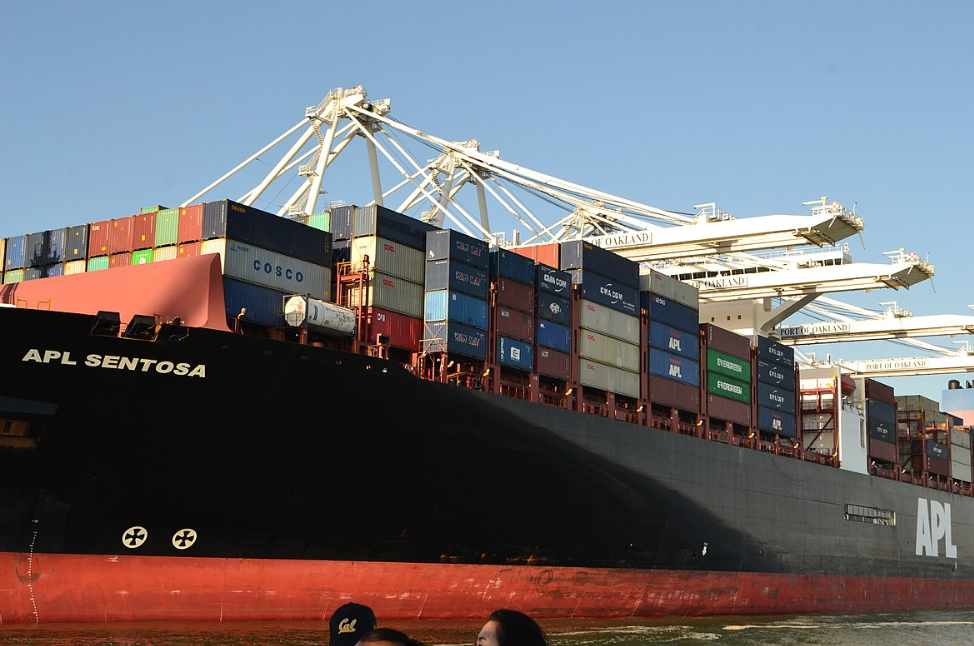Trade conflicts, weak investment growth and political uncertainty have a negative impact on the global economy and increase the risks of long-term stagnation, the OECD updated macro forecast read. According to the organization, this year the global economy will grow by 2.9% - this is the lowest rate since the crisis of 2008-2009 (last year, global GDP grew by 3.5%). In 2020, growth will also not exceed 2.9–3%. This assessment is more pessimistic than, for example, that of the International Monetary Fund, which expects to accelerate from growth from 3% this year to 3.4% in the next year.
Nevertheless, the state of the economies in the organization is evaluated depending on the volume of trade. For the United States and China, which have not yet reached the conclusion of a preliminary agreement, growth is forecasted to slow down - in the first case from 2.3% this year to 2% in 2020–2021, in the second - from 6.2% up to 5.7% and 5.5%. In the euro area and in Japan, GDP growth will not exceed 1–1.2%. Moody’s rating agency indicates that the growth of developing countries in 2020 will average 4.5% compared with 1.5% in developed ones. At the same time, the growth rates of large economies, such as China, Russia, Mexico and India, remain far from peak values.
According to new data from the World Trade Organization (WTO), the volume of restrictive trade measures introduced by the G-20 countries over the past six months has been a record. The barriers erected from mid-May to mid-October affect imports of $ 460.4 billion - a 37% increase over the previous six months. The growth rate of world trade this year, according to the organization’s forecast, will now not exceed 1.2%. Taking into account measures introduced several years ago (and still not repealed), a total of 8.8% of imports of G20 countries is limited, which is equivalent to $ 1.3 trillion.
In total, according to the WTO, the G20 countries introduced 28 new restrictions. These are mainly tariff increases, import bans and tightening of import procedures. At the same time, 36 measures to facilitate trade were introduced by countries, but they affect supplies only by $ 92.6 billion (in the previous half-year, coverage was more significant - $ 397.2 billion). Now, US import tariffs affect supplies from China by $ 362 billion. Beijing, in turn, imposes increased tariffs on US imports by $ 120 billion. At the same time, there are positive changes - in particular, according to Moody's, we are talking about lowering tariffs in Brazil, as well as the early ratification of a new agreement between the United States, Mexico and Canada, which should replace the NAFTA agreement, which is actually inoperative due to critical attitude towards it from the United States.
source: wto.org
Nevertheless, the state of the economies in the organization is evaluated depending on the volume of trade. For the United States and China, which have not yet reached the conclusion of a preliminary agreement, growth is forecasted to slow down - in the first case from 2.3% this year to 2% in 2020–2021, in the second - from 6.2% up to 5.7% and 5.5%. In the euro area and in Japan, GDP growth will not exceed 1–1.2%. Moody’s rating agency indicates that the growth of developing countries in 2020 will average 4.5% compared with 1.5% in developed ones. At the same time, the growth rates of large economies, such as China, Russia, Mexico and India, remain far from peak values.
According to new data from the World Trade Organization (WTO), the volume of restrictive trade measures introduced by the G-20 countries over the past six months has been a record. The barriers erected from mid-May to mid-October affect imports of $ 460.4 billion - a 37% increase over the previous six months. The growth rate of world trade this year, according to the organization’s forecast, will now not exceed 1.2%. Taking into account measures introduced several years ago (and still not repealed), a total of 8.8% of imports of G20 countries is limited, which is equivalent to $ 1.3 trillion.
In total, according to the WTO, the G20 countries introduced 28 new restrictions. These are mainly tariff increases, import bans and tightening of import procedures. At the same time, 36 measures to facilitate trade were introduced by countries, but they affect supplies only by $ 92.6 billion (in the previous half-year, coverage was more significant - $ 397.2 billion). Now, US import tariffs affect supplies from China by $ 362 billion. Beijing, in turn, imposes increased tariffs on US imports by $ 120 billion. At the same time, there are positive changes - in particular, according to Moody's, we are talking about lowering tariffs in Brazil, as well as the early ratification of a new agreement between the United States, Mexico and Canada, which should replace the NAFTA agreement, which is actually inoperative due to critical attitude towards it from the United States.
source: wto.org





